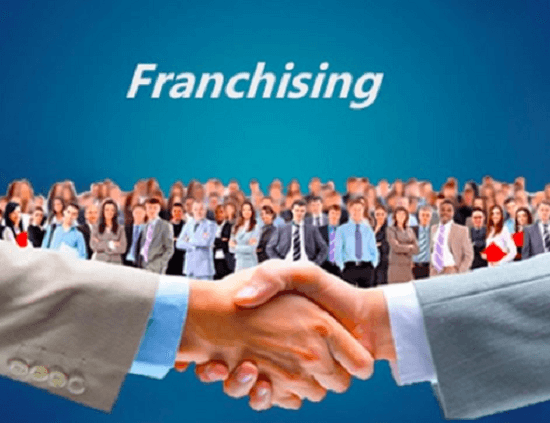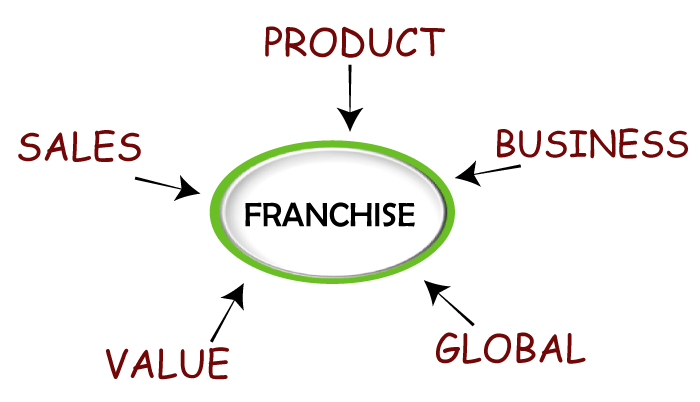Advantages and Disadvantages of FranchisingIn the marketing and distribution process known as franchising, the owner of a business system (the franchisor) offers a single person or group of people (the franchisee) the right to operate a company that sells goods or renders services using the franchisor's business system. Anyone planning to launch a business by purchasing a franchise should be aware that doing so binds the franchisee to a partnership agreement with the franchisor for a predetermined period; franchisees are also permitted, under specific circumstances, to use the franchisor's branding, trademarks, and identifying markings. It is commonly accepted that Isaac Singer invented franchising as we know it today in the 1850s. When Singer first put his sewing machine on the market after creating it, he ran into two major issues. First, before purchasing the innovation, clients must be shown how to utilize it. The second was that Singer did not have sufficient funds to produce his equipment in big quantities. 
Because each franchise was self-financed, Singer Manufacturing Company benefited from the franchisees' entrepreneurial skills and local market expertise, enabling him to achieve greater success than he could have on his own. Singer Manufacturing Company benefited from the entrepreneurial abilities and local market knowledge of the franchisees because each franchise was self-financed, which allowed Singer to succeed more than he could have on his own. The income from the license rights partially covered manufacturing expenses. Singer's business grew quickly once he started using this approach. The 1950s was the turning point for franchising. An effective businessman from Illinois named Ray Kroc realized the potential of franchising a prosperous hamburger service run by two brothers in southern California in 1954. The McDonald's restaurant chain is the most well-known franchise in the globe. There is probably a franchise market for every service, from yogurt to ATMs. Although franchising is a mainstay of American industry, its advantages have been noticed abroad. It is steadily expanding its presence in many other nations. This is especially valid in underdeveloped countries like the Middle East, China, India, Russia, Brazil, and other regions. 
Several other businesses have also incorporated aspects of the franchise concept. For instance, Coca-Cola grew throughout the United States by giving local business owners who obtained bottling rights the responsibility of producing, storing, and distributing the company's product. Automakers who had invested a huge amount of money in equipping their assembly lines with tools discovered they could build retail distribution networks with money provided by independent dealers. To effectively broaden their reach, oil firms like Standard Oil and Texaco also started awarding franchises to gas stations and auto repair shops across the U.S. Advantages of Franchising:
One benefit of franchising is that the franchisor provides business help to the franchisee. Depending on the franchise agreement's terms and the business's organization, the franchisee can receive a practically turnkey business operation. The brand, equipment, supplies, and marketing plan might be provided to them along with anything else they require to operate the business. All franchises provide access to the franchisor's knowledge, even if certain franchisees may still require it. Whether the material is found in a searchable, digital knowledge base or is simply a phone number to call the franchisor directly, the franchisee has access to a wide pool of business counsel to help them navigate the process of beginning and running a business. With this knowledge, running a prosperous firm is far easier than starting one from scratch.
Franchises often generate higher profits than independently owned businesses. Numerous clients flock to franchisees because of most of their well-known brands. This popularity leads to higher revenues. Franchises that charge high franchise fees nonetheless generate sizable profits on their initial expenditures. 
One big benefit franchisees have when they start a franchise is brand recognition. Starting a business from scratch would require building your clientele and reputation from scratch, which would take time. Franchises, on the other hand, have long-standing operations and clientele. People will understand what your company does, what you offer, and what to expect when you launch a franchise with this distinctive branding.
Operating a franchise with numerous already successful locations increases the likelihood that you will succeed as well, albeit this is not a guarantee compared to establishing a business from scratch. 
The franchisor's brand has been highlighted before but is still a potent asset. Compared to a new start-up, franchising with an established brand allows you to generate business rapidly whether you live in a town of 500 or 50,000 people. At the beginning of operations, this also reduces marketing efforts.
Especially for an entrepreneur, the cost of inventory and other products that must be bought daily, monthly, or annually can add up quickly. Typically, this leads to discounts on large-batch purchases that other companies cannot acquire. However, a franchisee will profit from the main company's enormous purchasing power.
While you won't have the complete autonomy and control that comes with owning your own company, the franchisor will often take a hands-off approach to oversee your operation. You can adopt a distinctive management approach and fully make the place your own as long as everything is going well and a profit is created (within reason). Disadvantages of Franchising:
Franchising is not the greatest option if you are genuinely passionate about operating your own company and putting your ideas into practice. People interested in beginning their own business frequently invest in franchising since it saves them the time and money it would take to create their brand. Franchising is different than owning and operating a firm, though. The franchisor determines all other choices about the brand and products while you are managing that particular location. There will be established operational standards that you must follow; failure to do so may lead to contract termination.
The popularity and reputation of a worldwide brand, which is often excellent, are two reasons to franchise it. On the other hand, franchisees will probably bear the brunt of the consequences if the brand's reputation is tarnished in any way and public opinion declines. Scams or financial errors made by the franchisor cannot be controlled. This should be considered before forming a partnership with a more well-known company. The circumstances surrounding the former spokesperson for Subway are a simple case in point. Despite having no involvement in the occurrence, every single franchise owner was affected. However, if your company is larger than the subway, it may be able to weather the crisis and carry on as usual. This is another factor to consider when looking at companies for franchises.
A franchisee may decide to leave the franchise at some point, even if they are successful with their business. If the franchisee wants to leave before the date specified in the contract, it could be challenging to accomplish this. Although the franchisee might be able to sell the firm ahead of schedule, this can only be done with the franchisor's or parent company's consent. It should gain from the appropriate relationship.
The initial cost of a franchise can range from tens of thousands to hundreds of thousands of dollars, making it generally a costly investment. As we already noted, you might also owe the franchisor or parent company royalty payments for as long as you are in business (it's uncommon, but it does happen with some franchises). We advise browsing through our database of low-cost franchises if you're looking for profitable franchises with a cheap entrance fee.
When you own your own company, you can expand wherever you see fit, whether that means enlarging your existing location or moving to a new city. While the franchisor will support expansion, there are geographical restrictions to prevent one franchisee from going up against another in the same system. 
One benefit of owning a franchise is the support network you receive, but there is also the potential for conflict. Any tight professional relationship entails the risk that the parties won't get along, especially if there is a power disparity. Even if the franchisee and franchisor's expectations are spelled out in the franchise agreement, the franchisee can only enforce the agreement if they engage in an expensive court battle. The closeness of the business relationship between the franchisor and franchisee is ripe for conflict, whether it stems from a lack of support or just a clash of personalities. Before doing business with prospective franchisees, a franchisor should thoroughly vet each. As the franchisor, you should take advantage of this chance to learn more about the franchisor's temperament and management style. 
Along with the initial expenditure you will need to make to start a franchise, additional ongoing costs are unique to franchises. The franchise contract should include a list of the franchise's continuing costs. Several examples of these costs include royalties, advertising costs, and the cost of training services. Considering these ongoing expenses would help when deciding whether to start a franchise. The ConclusionEffective business strategies can be advantageous to newcomers to the business world and seasoned entrepreneurs looking to expand their current businesses or diversify into other markets. Thus, it is clear that franchising is a successful and cutting-edge business model designed to spread goods and services and, as such, a significant sector of business growth in the modern corporate world. |
 For Videos Join Our Youtube Channel: Join Now
For Videos Join Our Youtube Channel: Join Now
Feedback
- Send your Feedback to [email protected]
Help Others, Please Share










